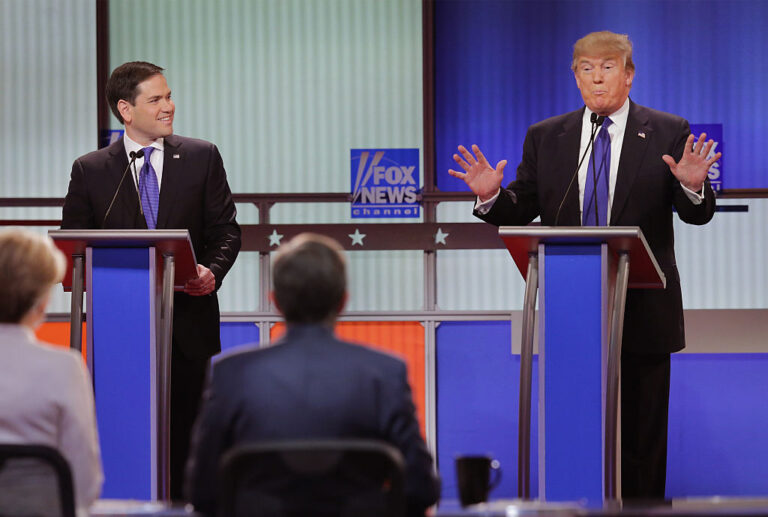At first glance, the US Supreme Court ruling Vidal vs ElsterThe Trump Too Small case, also known as the Trump Too Small case, seems like a mess. Despite the unanimous decision, there are four separate opinions with different arguments, some of which are only joined in certain parts by the other justices. One could use a big wall and strings of several colors to record the subtle differences in each justice’s viewpoint. Fortunately, there is no need to delve into the opinions so deeply. It would be like trying to map every single stream in the bottom of the Amazon River. The exact depth of each channel is not important to anyone except the most obsessive people, since the river never goes down that low.
Despite the ostensible differences, this case can be rephrased as a single unifying proposition in political free speech law: you can’t monopolize the market for slandering named politicians.
Unfortunately, this case does not speak in straightforward terms about political speech, but rather distorts it through the cloudy lens of trademarks. This cloudiness is the result of a dispute over methods of constitutional interpretation that do not matter here, since all methods reach the same conclusion.
Generally, in this case, Commercial Statement Taking into account the value of the slogan and the use of another person’s name, it concludes that third parties are not permitted to trade in another person’s name. This opinion (or all four opinions) uses an unnecessarily complicated approach to reach a simplistic, uniform determination that trademarks cannot be used to restrict political speech.
“Too Small for Trump” is an example of a political slogan that California lawyer and political activist Steve Elster attempted to trademark along with the associated hand gesture. It would make anyone but the most naive scruple-free slogan sneer. The slogan’s double meaning was designed to convey a message about the psychology and physiology of former President Donald Trump. Such a message has nothing to do with branding, unlike familiar slogans like “I’m Pepper,” “Just Do It,” and “I Love It.” It was not intended to identify Elster’s product line, but as a political statement.
That is the crux of the matter. If you Opponent If Trump wanted to trademark his slogan, he wouldn’t want Elster to trademark it, because he would need Elster’s permission to use it. Intellectual property rights are monopolized by governments, making it expensive or potentially impossible for others to use those words. In this case, Trump’s slogan would be: Political Message. Elster can control the phrase so they can monitor who uses it and how much it costs. Limiting usage is the purpose of a trademark.
Take, for example, Trump’s use of “Make America Great Again” as a slogan. After Trump began using it, Nashville radio personality Bobby Bones trademarked the slogan, claimed he had extorted charitable donations from Trump, and tweeted “Take back the slogan” after Trump made the donation. Bones was clearly trolling Trump in both a political and intellectual property sense. We do not want a world in which intellectual property trolls flood the U.S. Patent and Trademark Office, registering trademarks, and preventing political actors from expressing themselves in powerful terms whenever politicians utter words, for whatever purpose.
Elster’s attempt to monopolize “Trump Too Small” has nothing to do with branding and everything to do with politics. It’s not about Elster’s product control, identification, or marketing. It’s about criticizing Trump as a person.
What if Trump had been thinking of trademarking a slogan or phrase that portrayed him negatively, such as “Trump is too small,” not to use the phrase, but to silence others from saying bad things about him? Trademarking is low cost, and trolling can be used to stop opponents from making harmful statements, at least until they win the election. Why not “catch and kill” harmful speech in addition to harmful articles in the tabloids? This was the real danger in this case.
No one should be able to block the political use of the phrase “Let’s Go Brandon” on the other end of the political spectrum, not even race car driver Brandon Brown, whose name many Americans would never have known existed if it hadn’t accidentally become a meme. Trademark registrations should be limited to commercial purposes to avoid intentionally restricting free political speech.
So let anyone who wants to declare that Trump is too weak or express false support for a mid-level NASCAR driver do so. This is America, dammit! Good thing the Supreme Court let it be — even if each voice couldn’t have expressed it in a more direct and singular way.

